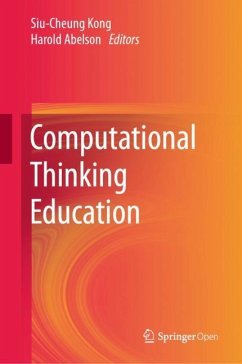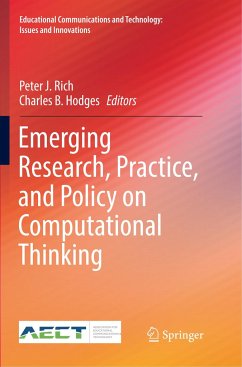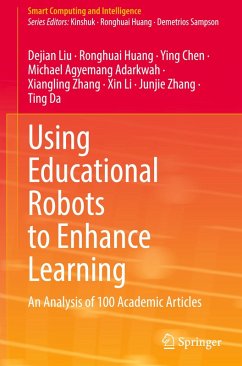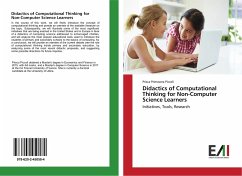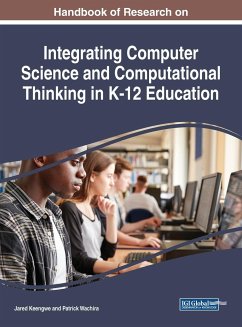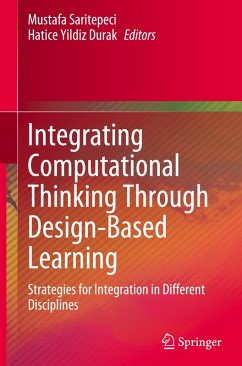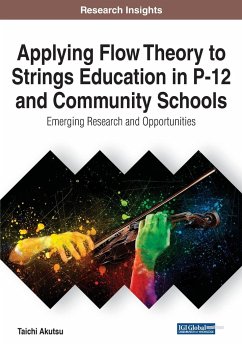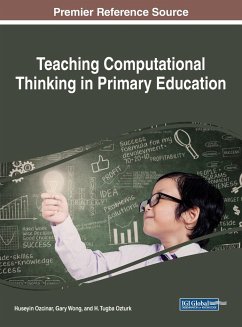
Handbook of Research on Tools for Teaching Computational Thinking in P-12 Education
Versandkostenfrei!
Versandfertig in 1-2 Wochen
247,99 €
inkl. MwSt.

PAYBACK Punkte
124 °P sammeln!
While the growth of computational thinking has brought new awareness to the importance of computing education, it has also created new challenges. Many educational initiatives focus solely on the programming aspects, such as variables, loops, conditionals, parallelism, operators, and data handling, divorcing computing from real-world contexts and applications. This decontextualization threatens to make learners believe that they do not need to learn computing, as they cannot envision a future in which they will need to use it, just as many see math and physics education as unnecessary. The Han...
While the growth of computational thinking has brought new awareness to the importance of computing education, it has also created new challenges. Many educational initiatives focus solely on the programming aspects, such as variables, loops, conditionals, parallelism, operators, and data handling, divorcing computing from real-world contexts and applications. This decontextualization threatens to make learners believe that they do not need to learn computing, as they cannot envision a future in which they will need to use it, just as many see math and physics education as unnecessary. The Handbook of Research on Tools for Teaching Computational Thinking in P-12 Education is a cutting-edge research publication that examines the implementation of computational thinking into school curriculum in order to develop creative problem-solving skills and to build a computational identity which will allow for future STEM growth. Moreover, the book advocates for a new approach to computing education that argues that while learning about computing, young people should also have opportunities to create with computing, which will have a direct impact on their lives and their communities. Featuring a wide range of topics such as assessment, digital teaching, and educational robotics, this book is ideal for academicians, instructional designers, teachers, education professionals, administrators, researchers, and students.





